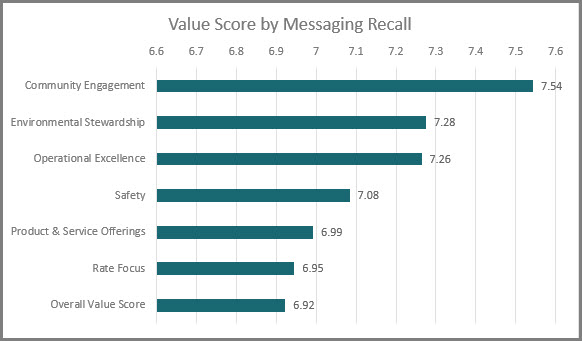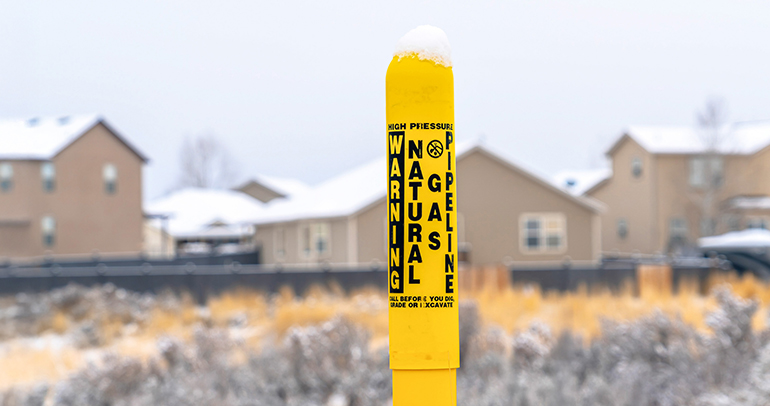
Customers nationwide feel they are getting less value from their utility. Perceptions of paying reasonable rates for the services received from a utility are at the lowest levels we have seen since the end of 2015, as tracked in the Utility Trusted Brand & Customer Engagement: Residential (UTBCE) study.
A Stunted Understanding of “Value”
Many utilities are increasing their attention on improving consumer value perceptions. While some utilities have long had “value” as a key performance indicator (KPI), others are now in the process of updating their customer experience KPIs and looking at including “value” in corporate scorecards. However, in utility-land, “value” often reads as “price” (or “rates”)—an interpretation that hamstrings utility efforts to drive value perceptions by leaving a very important part of the value equation off the table. Specifically, “value” is a combination of two things, what you pay (where utilities almost exclusively focus) and what you get.
The Energy Research Group at Escalent found that the utility industry’s focus on the “what you pay” component leaves value perceptions at the whim of rate cases, which often don’t help build utilities’ brand. For example, one investor-owned utility recently defended a rate increase by saying that “consumers should eat fewer Big Macs.” Unsurprisingly, this did little to drive value perceptions and resulted in negative press from belittling the impact of the extra cost on many households.
Five Ways to Improve Your Customers’ Perception of the Value of Your Utility
You might be surprised that customer perceptions of value only loosely tie to what customers pay—“feeling that their bill is manageable” accounts for less than 2% of the overall perception of value. Understanding that, how can utilities drive improved perceptions of value? Through our brand research, we have found five ways utilities can improve the perception of value:
- Demonstrate strong community engagement. Messages about employee volunteering efforts, charitable donations and local economic development efforts resonate strongly with consumers as they think about the value they get for their utility dollar. The good news is that most utilities are already deeply engaged in their communities. The missed opportunity is sharing with customers what the utility is doing—fewer than 10% of customers nationally recall any community engagement-related messaging from their utility.

- Show how your company is an environmental steward. This is generally a good-news story for the utility industry. According to the Energy Information Administration (EIA), power sector greenhouse gas emissions in 2017 were 28% below their highs in 2007. Perhaps more importantly, utilities can easily demonstrate their stewardship to customers by implementing things such as public EV charging stations, natural gas vehicle refueling stations, hybrid/electric/natural gas service vehicles, and utility-scale solar arrays and wind turbines. As with community engagement, the imperative for utilities is not so much to change what they’re doing but rather to communicate more with their customers about it.
- Consistently deliver on operational excellence. A long-standing strength of the industry, customers nonetheless expect their utilities to get the “basics” right every time. This means investing in system reliability and responding quickly and transparently when things go wrong, delivering accurate bills—and more importantly, an easy-to-navigate billing and payment journey—and delivering exemplary customer service when customers need it (only 58% of customers needed customer service in the last year).
- Guard your utility’s reputation. Every interaction matters in showing customers that you care about them. Be unfailingly ethical and trustworthy. Keep your commitments. This is easy to say, but often much harder to operationalize as it requires all employees to know how they impact customers’ experiences along with rigorous alignment between systems, processes and customer communication to ensure that the promised experience is lived by customers.
- Go beyond—well beyond—the commodity. Customers value product and service offerings from their utility. While billing and payment options are evergreen offerings, many utilities are extending what they offer via online marketplaces, home warranty/service programs, and alternative fuel options such as rooftop solar and backup generator support. Customers respond strongly to utility offerings that help them control their energy use and cost, but also value offerings that improve convenience and reduce their environmental impact.
The bottom line is that utilities do offer great value to customers—but, when it comes to value, perception equals reality. The industry needs to reorient how it thinks about “value” to focus much less on price and much more on what it delivers to its customers and community.
What to know more? Send us a note!









